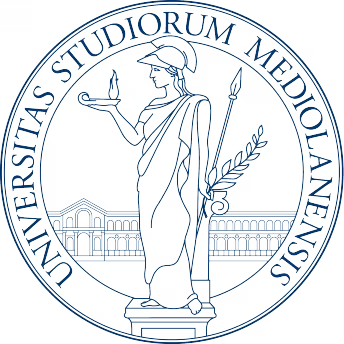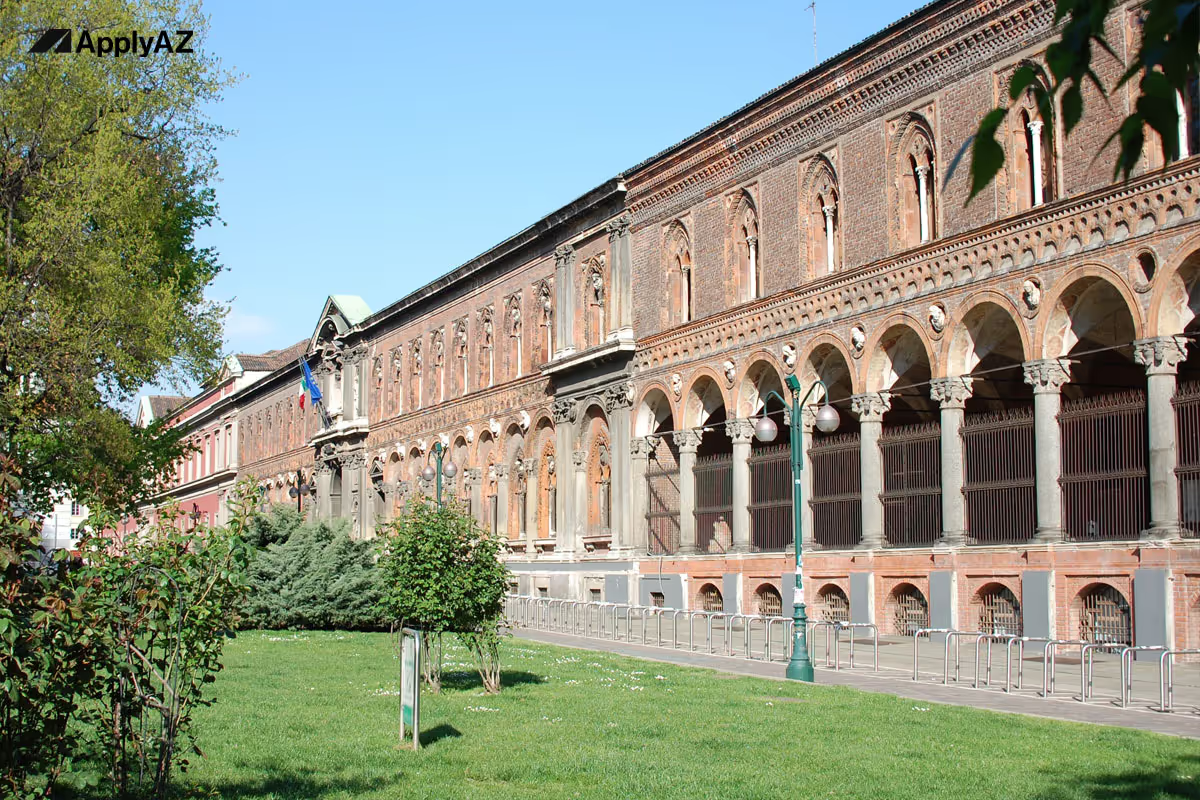Heading
Heading








University of Milan
English‑taught programs in Italy: breadth and quality
Founded in 1924, the University of Milan is a flagship among public Italian universities. It offers more than 15 full degrees entirely in English across life sciences, data science, economics, law, and the humanities. Small‑group seminars, modern laboratories, and research‑led teaching earn the university a consistent place in global top‑200 rankings for medicine, biology, and physics. Academic life blends lectures with project work and Erasmus+ exchanges, giving you both depth and international exposure.
Life in Milan: culture, costs, connections
Milan pairs Renaissance architecture with Europe’s fastest‑growing innovation district. Four metro lines, trams, and regional trains keep average commutes under 35 minutes, while student passes cut transport costs by half. Cafés stay open late for study sessions; world‑class music, design fairs, and football derbies fill weekends. Rents start around €400 per month in shared flats—pricey for Italy, but offset by campus dining at €4 per meal and the chance to share expenses with classmates.
Funding advantages: DSU grant and other support
As a state institution, Milan charges income‑linked tuition that ranges from €156 to roughly €3 000 per year. International students can apply for the DSU grant, which may waive tuition entirely and add a €7 000 living allowance, residence‑hall place, and meal vouchers. Merit scholarships reward top GPAs, and research assistant roles provide paid experience. With these tools, many graduates finish their master’s with little or no debt, mirroring the affordability of tuition‑free universities Italy promotes.
Career gateways in a global city
Milan is home to Italy’s stock exchange and to headquarters of companies such as IBM, Luxottica, and Nestlé. University partnerships cover more than 4 000 firms, feeding internships in finance, biotech, fashion tech, and AI start‑ups. Career Services run résumé labs, mock interviews, and on‑campus job fairs; 87 % of international graduates secure work or PhD places within seven months. Language tandems, alumni mentoring, and professional certification courses (Prince2, CFA Level I, Lean Six Sigma) further boost employability.
Five key takeaways
- Wide portfolio of English degrees backed by strong research.
- Dynamic metropolitan lifestyle with rich art and sport.
- Income‑based fees plus DSU grant make study highly affordable.
- Direct pipelines to internships and high‑growth careers.
- Supportive campus: libraries until midnight, 100+ clubs, free fitness classes.
In two minutes we’ll confirm whether you meet the basic entry rules for tuition‑free, English‑taught degrees in Italy. We’ll then quickly see if we still have space for you this month. If so, you’ll get a personalised offer. Accept it, and our experts hand‑craft a shortlist of majors that fit your grades, goals, and career plans. Upload your documents once; we submit every university and scholarship application, line up multiple admission letters, and guide you through the visa process—backed by our admission‑and‑scholarship guarantee.
MSc Sustainable Natural Resource Management (LM‑73) at University of Milan
An English‑taught programme in Italy for future resource stewards
If you dream of shaping fair, science‑based policies for forests, water, soil, and biodiversity, the University of Milan’s two‑year MSc in Sustainable Natural Resource Management is your launch‑pad. Within the first semester you join classmates from five continents, tackle case studies on the Amazon, the Alps, and the Mekong, and gain the analytical toolkit that makes English‑taught programs in Italy so attractive: GIS mapping, carbon‑footprint analysis, and stakeholder negotiation. At a top‑ranked institution among public Italian universities, you pay regulated fees and can unlock the DSU grant—bringing costs close to those at tuition‑free universities Italy is known for.
What drives this master’s
Global consumption already outstrips the planet’s regenerative capacity by 1.7 times. Climate treaties, green finance, and corporate ESG targets all demand professionals who understand both Earth‑system science and human economics. This LM‑73 course bridges ecology, engineering, governance, and behavioural change so you can design solutions that endure.
Curriculum roadmap: four integrated learning pillars
1. Ecological foundations and data skills
Your first year begins with Ecosystem Ecology, Soil Science, and Hydrology, followed by Quantitative Methods for Environmental Science. You gain hands‑on practice with R, Python, and QGIS, turning raw field observations into decision‑ready maps and dashboards. Lecturers use real EU LIFE datasets so each assignment mirrors professional work.
2. Sustainable management of land, water, and living resources
Second‑semester modules focus on Forest Management, Protected‑Area Planning, and Agro‑ecology. You study payment‑for‑ecosystem‑services schemes and create a management plan that balances rural livelihoods with carbon sequestration targets. Guest professors from FAO and the European Forest Institute critique your proposal, sharpening your executive‑summary writing.
3. Circular economy and low‑impact technologies
Year Two explores Industrial Ecology, Renewable‑Energy Integration, and Waste Valorisation. In the Circular Innovation Lab you design a nutrient‑recycling solution that turns food waste into biofertiliser, calculate its life‑cycle emissions, and pitch it to a mock panel of venture investors and policy officers.
4. Governance, ethics, and social engagement
Finally, you take Environmental Law, Resource Economics, and Stakeholder Engagement workshops. Role‑play negotiations teach you to mediate between community activists, mining firms, and government agencies, ensuring that proposed projects respect both ecosystems and cultural values.
Fieldwork, laboratories, and research immersion
- Mediterranean Biosphere Reserve Field Course – Two weeks mapping land‑cover change, measuring soil moisture, and interviewing farmers about agri‑environment payments.
- River Restoration Studio – Use drones and acoustic sensors to model sediment flows, then redesign a riverbank to cut flood risk by 30 %.
- Climate‑Smart Forestry Workshop – Simulate wildfire scenarios, test sensor networks, and build a dashboard that guides real‑time interventions.
- Thesis embedded in active projects – Choose among Horizon Europe consortia, Lombardy region pilot studies, or UN‑backed biodiversity monitoring. Many students publish findings in journals like Global Environmental Change before graduation.
Graduates enter an employment market growing 8 % annually, fuelled by EU Green Deal spending and private‑sector net‑zero commitments. Career Services run simulation interviews, connect you to alumni mentors, and co‑host job fairs with the Italian Society of Ecology.
Funding your studies: DSU grant and more
The University of Milan keeps tuition linked to family income, ranging between €156 and €3 200 a year. International students can offset nearly all living and study costs through:
- DSU grant – Covers tuition, meals, dormitory place, and up to €7 000 cash allowance.
- Merit scholarships – €5 000 for first‑year GPA above 28/30; renewable.
- Women in Climate Leadership Award – €3 500 for outstanding female candidates.
- Erasmus+ grant – €350–€450 per month for a semester abroad.
- Research assistantships – Paid roles (≈€700 monthly) on EU‑funded projects.
Combined, these mechanisms create financial conditions akin to those at tuition‑free universities Italy highlights, yet within a high‑research environment.
Admissions essentials and ApplyAZ support
- Academic background: Bachelor’s in environmental science, biology, engineering, or economics with at least 24 ECTS in eco‑related subjects.
- English level: IELTS 6.5 / TOEFL 90 or proof of previous English‑medium degree.
- Application dossier: CV, transcript, passport, statement of purpose, and two academic references.
- Online interview: Discuss a sustainability case you select; show critical thinking and data fluency.
Ready for this programme?
If you qualify and we still have a spot this month, we’ll reserve your place with ApplyAZ. Our team will tailor a set of best‑fit majors—including this course—and handle every form and deadline for you. One upload, many applications, guaranteed offers, DSU grant support, and visa coaching: that’s the ApplyAZ promise. Start now and secure your spot before this month’s intake fills up.

They Began right where you are










